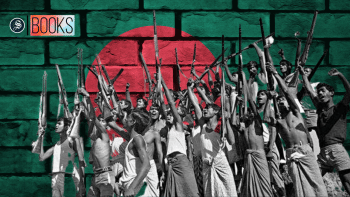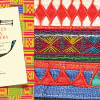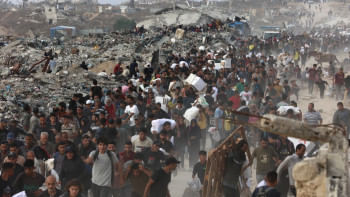A refugee's tale in Calcutta

Calcutta was a central place in the life of Eastern Bengalis for more than a century as the capital of colonial Bengal. The Partition of Bengal in 1947 made a complete breach of Calcutta's link to Eastern Bengal, and in 1971, in a twist of fate, it once again became the go-to refuge for many Eastern Bengalis fleeing genocidal violence.
Late Election Commissioner Mahbub Talukdar, born in Tangail in 1941, has sketched a brief scenario of his life in Calcutta in Amar Kolkata Jibon ('My Experience in Calcutta'). He spent five years in this city in his childhood with his parents. The author's father, a government employee, had migrated to Dhaka in 1948 from Calcutta and settled in a house at Thakurpara in Kamalapur named 'Satis Bhaban'. Mahbub would revisit Calcutta as a refugee when the Pakistan army unleashed a war against Bengalis.
After the creation of Pakistan, social and cultural relations between Calcutta and Eastern Bengal were abruptly interrupted. Mahbub notes that India had been marked as a land of enemies; thus, separation from any kind of interaction with India was regarded as the foundation of Pakistani nationalism. Contact between the two parts of Bengal became nearly nonexistent. Mahbub recollects in his book the events of the Kagmari Shommelon in 1957, when many acclaimed Bengali writers and thinkers attended that meeting from West Bengal. That was the first and last major meeting in the entire period of united Pakistan that reconnected both sides of Bengal through cultural exchange.
Mahbub had planned to do doctoral research on the rise and development of Satya Pir in Bangla literature, a subject with no direct connection to the Pakistani identity. He intended to examine how two distinctive religions met in Satya Pir through indigenous rites and practices. He wrote to scholars of West Bengal such as Suniti Kumar Chatterjee, Sukumar Sen, Ashutosh Bhattacharya and Panchanan Mandal. All responded to him with suggestions and assured him of assistance. However, he could not materialise this plan as he got preoccupied with other social and cultural activities.
Though communication with West Bengal was dangerous in those days, Mahbub established a channel with journals and some other people in Calcutta through his literary works.
When the war of 1971 began, he was a junior faculty member at the University of Chittagong. He initially took shelter in Agartala in June 1971. After staying some days, he finally managed to fly to Calcutta using his political connections with the leaders in the resistance war. There he got a shelter in his pen friend Archana Chowdhury's house.
In his candid testimony of the war experience, Mahbub mentions that after reaching Calcutta, he was gripped by a certain callousness. Unlike many of the war refugees from Bangladesh in Calcutta, he felt no urge to be involved in the war. He had fled the country to save his life, not to participate in the fight, even though he had been an influential activist in the '60s. Eventually, though, he did play a part in the war efforts by giving a speech on Swadhin Bangla Betar Kendra's clandestine radio, but took care to change his name so that the Pakistani Army could not identify him.
It was his 18-year-old younger brother Mosaddek Talukdar Babu, a frontal freedom fighter, who came to Calcutta to briefly meet him. They watched a film together—Kati Patanga starring Rajesh Khanna and Sharmila Tagore. Babu enjoyed the film immensely. Before leaving, he said he liked this Calcutta city. Bangladesh would definitely be liberated, he said, and they would meet again.
It was the last meeting between the two brothers.
War is a strange situation that gets people acting in uncommon ways.
Priyam Pritim Paul is pursuing his PhD at South Asian University, New Delhi.

 For all latest news, follow The Daily Star's Google News channel.
For all latest news, follow The Daily Star's Google News channel. 











Comments